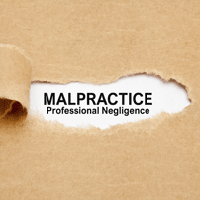Every Nine Minutes Someone Dies from a Medical Misdiagnosis
October 24, 2018 According to new data, every nine minutes someone in a hospital in the United States dies because a doctor misdiagnoses them or because the diagnosis was delayed. In response to this threat against public health, more than 40 healthcare and patient advocacy organizations have joined together to create the Coalition to Improve Diagnosis, or CID. The coalition’s primary goal is to improve the diagnostic process in order to better prevent medical mistakes from claiming American lives.
According to new data, every nine minutes someone in a hospital in the United States dies because a doctor misdiagnoses them or because the diagnosis was delayed. In response to this threat against public health, more than 40 healthcare and patient advocacy organizations have joined together to create the Coalition to Improve Diagnosis, or CID. The coalition’s primary goal is to improve the diagnostic process in order to better prevent medical mistakes from claiming American lives.
Why is it so Hard to Correctly Diagnose a Patient?
The CID reports that somewhere between 40,000 to 80,000 people die every year from delayed or inaccurate medical diagnoses. A medical misdiagnosis can be anything from a doctor’s mistake in diagnosing a type of cancer to one who fails to correctly identify a patient’s condition in a timely manner. Patients depend on healthcare professionals to keep them healthy, but preventable mistakes are taking far too many lives. One critical aspect of diagnosis is patient involvement – the more engaged a person is in his or her care, the more likely their doctor is to accurately diagnose them.
When is a Medical Misdiagnosis Considered Medical Malpractice or Medical Negligence?
When a medical misdiagnosis or delayed diagnosis is the result of a healthcare professional’s negligent behavior, it may be considered medical malpractice. Although doctors are not required to be right every time, they must meet a certain standard of care. In order to make a case for medical malpractice, a plaintiff has to prove that his or her doctor failed to demonstrate the same level of skill or knowledge that doctors of a similar position would have shown. Any time that a doctor’s negligence results in the illness, injury, or death of a patient it is important to determine exactly what happened – as well as why.
Here are a few examples of situations that qualify as medical negligence:
- A patient presents at an emergency department with well-documented stroke symptoms, but the doctor fails to diagnose it. The patient is discharged from the hospital and experiences permanent brain damage as a result;
- A person who is experiencing abdominal pain goes to an ER. The doctor fails to diagnose the patient’s condition – appendicitis – in a timely manner, and the patient ends up going into shock and dying. And:
- A doctor prescribes the wrong medication to the patient, and he or she has a severe allergic reaction because of it.
The examples above in no way represent a complete list of what can be considered medically negligent.
Some Safety Tips for Patients
Going to the doctor can be overwhelming and scary – and that can make it easy for patients to underreport symptoms or forget to talk about particular complaints. Before a person goes to the doctor, he or she can take a few simple and easy steps that help simplify the process:
- Keep an updated list of symptoms, medication side effects, what triggers a problem, etc.;
- Have proper identification and insurance information;
- Create a list of questions and notes to discuss with the doctor before going to the appointment, and:
- Consider bringing a friend or family member who can help take notes and remember what the doctor says
We understand that it can be hard to tell the difference between medical negligence and a tragic but unpreventable mistake, but talking to an attorney who has experience representing victims of medical malpractice can help make the often-confusing process an easier one. If you have questions about an illness or injury resulting from negligent medical care, please contact a representative at our firm directly.
Philadelphia Medical Malpractice Lawyers at Galfand Berger, LLP Representing Injured Individuals Since 1947
If you or a loved one was a victim of medical negligence, we are happy to answer your questions and have one of our Philadelphia medical malpractice lawyers review your case for free. With offices located in Philadelphia, Bethlehem, Lancaster, and Reading, Galfand Berger serves clients throughout Pennsylvania and New Jersey. To schedule a consultation, call us at 800-222-8792 or complete our online contact form.
 Google Screened
Google Screened
